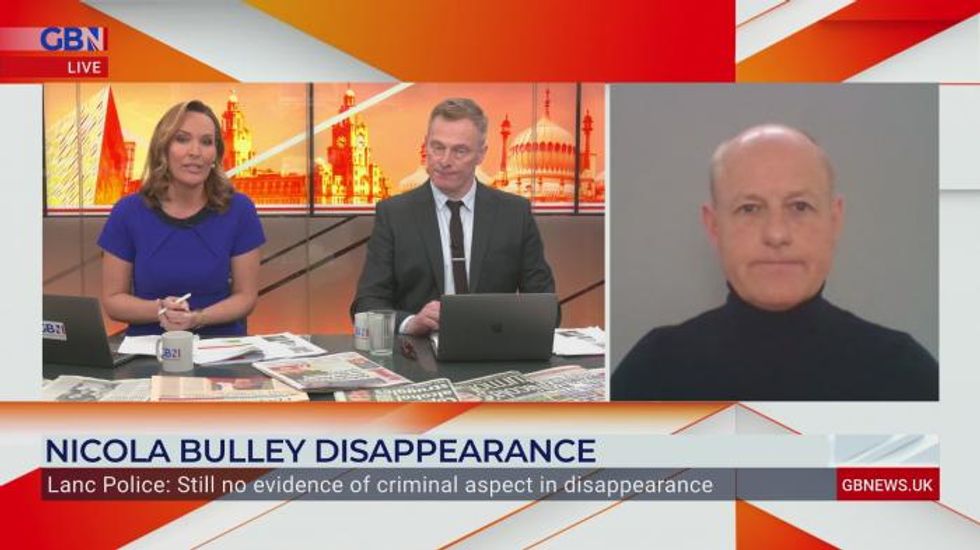The 45-year-old mum went missing last month and the police have maintained their belief that her disappearance is not suspicious
Don't Miss
Most Read
Trending on GB News
Fury at Lancashire police is growing with the constabulary being accused of having made four crucial errors in their botches search for Nicola Bulley.
The 45-year-old mum of two went missing on January 27 and the search has entered its third week.
Nicola was last seen walking her brown spaniel Willow near the River Wyre in St Michaels on Wyre, Lancashire.
Police believe Bulley may have “have fallen into the river for some reason”.
They have maintained that her disappearance was not being treated as suspicious.
But there are key areas where the force’s actions, or lack of, have led experts to point out failings in their investigation.
Nicola Bulley's last-known movements.
PA Graphics/Press Association Images
Yesterday, Lancashire Police revealed that Nicola suffered “significant issues with alcohol” in the past.
Their decision to reveal the personal information has been labelled “horrendous” by experts.
The police previously said Nicola is a “high-risk” missing person due to suffering “specific vulnerabilities”.
A statement from Lancashire Police said: "Nicola had in the past suffered with some significant issues with alcohol which were brought on by her ongoing struggles with the menopause”
Nicola was visited by the police after a report of concern for welfare just over two weeks before her disappearance.
Peter Faulding during a search for Nicola Bulley.
Peter Byrne
There has been national fury at the decision to reveal such personal information.
Chief executive of Specialist Group International, Peter Faulding told GB News: “This is horrendous, I’ve not spoken to Paul [Ansell] for a few days now. I feel so sorry for them that it’s been released this way. It should never have come out, they could have just told us on the quiet. It would have changed everything.”
Last week, an ex-detective Chief Inspector of the Met Police criticised Lancashire Police for not cordoning off the last known location of Bulley, saying that it had been turned into a “tasteless tourist spot”.
Simon Harding said: “You would expect the area where Nicola was last seen to be cordoned off too, to stop people descending on it as a tasteless tourist spot and trampling the area, losing any potential evidence.
He added in an interview with The Sunday Times: “There does not appear to be any cordon because Nicola’s disappearance is said to be non-suspicious.”
Yesterday, Police Assistant Chief Constable Peter Lawson repeated the force’s line that there was still "no evidence to indicate a criminal aspect or third party involvement".
Harding also said the police have become too focussed on their theory that Nicola fell into the river.
He continued: “If every possible route in and out of that area is not covered by CCTV - as is likely in the countryside - you simply cannot be sure that someone else is not involved.
“If you are 100 per cent sure no one entered or left the scene within the crucial time frame, of course you would suggest - as one hypothesis - that Nicola might have fallen into the river.
“If you are not sure, however, it can be an incredibly damaging message.
“You are inadvertently saying to the public: ‘Don’t call us as we don’t want to know about suspicious people, vehicles or events’.”
The bench where Nicola Bulley's phone was found.
Peter Powell
The force’s communication with the public has also been criticised, with Harding lambasting their lack of efforts to stem conspiracies and wild theories and letting speculation continue to overshadow the case.
He said: “If they are in possession of new facts, I would consider whether it might be time to inform the public rather than let speculation continue.
"There is nothing to lose - you only really hold information back when it is suspicious and points to potential culprits.
“But I do not believe they have that, or else Nicola’s family, friends and community would not be so proactive in giving interviews saying they are sure she is not in the river.”












